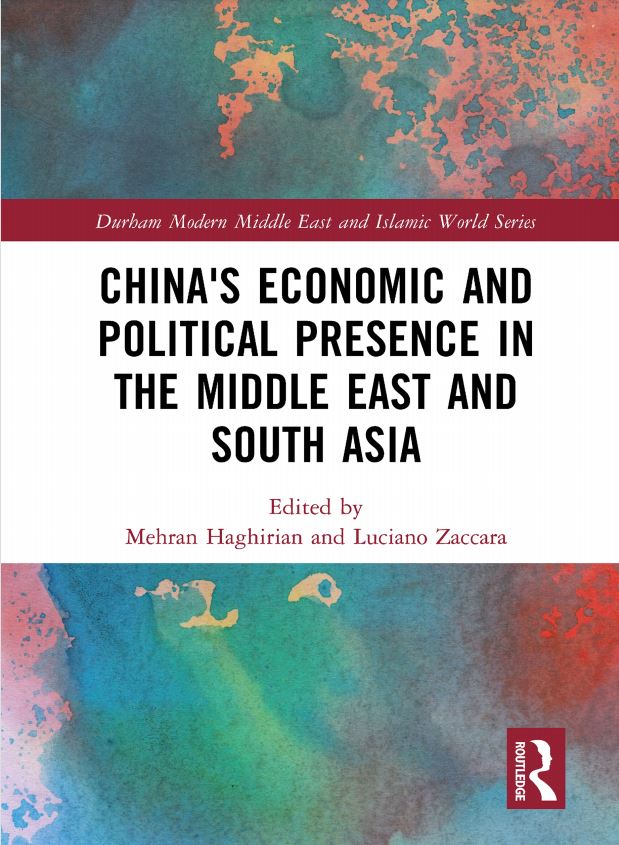China’s Security Cooperation with Bangladesh and Pakistan in the Context of ‘Belt and Road Initiative’
Time: 2022-09-19 Author: Noor Mohammad Sarker

Mehran Haghirian and Luciano Zaccara (eds.), China’s Economic and Political Presence in the Middle East and South Asia, (London: Routledge, 2023).
About this book chapter
The Belt and Road Initiative (BRI) is, by far, the largest intercontinental mega project of the twenty-first century. Given its historical and cultural aspects, both the overland and the maritime silk routes of BRI have underlying connections with South Asia. The active participation of Bangladesh and Pakistan in BRI from this region clasps a greater strategic importance for China. It has unlocked a new set of opportunities to strengthen China's long-standing bilateral security engagements with these two countries. China–Pakistan bilateral relationship has already been reached into the stage of“all-weather friendship,” thanks to their sharing of land-boundary as well as to the contemporary settings of regional power politics in South Asia. China-Pakistan Economic Corridor (CPEC) falls under China's Silk Road initiative, whereas the Gwadar seaport of Pakistan is one of the checkpoints of China's Maritime Silk Road (MSR). China–Pakistan engagements under BRI have further strengthened their strategic partnership in the security arena. Correspondingly, Bangladesh and China have been going through deeper economic, security and cultural engagements since 1975, which have offiffifficially been termed as a“strategic partnership”in recent years by both countries. Though Bangladesh does not share a border with China, the former holds a key geographical position in both the land and the maritime routes of BRI. Bangladesh is one of the four members of BCIM-EC (Bangladesh, China, India, Myanmar-Economic Corridor), which aims to revive the ancient Southern Silk Road under BRI, and its Chittagong seaport falls under the sea route of MSR. Considering these developments, the present study aims to analyze China's security cooperation with Bangladesh and Pakistan in the context of BRI and its implications to the individual interests and achievements of these three countries in the geopolitics of the Indian Ocean. This chapter develops its arguments in several stages. It explores the geopolitical importance of the Indian Ocean and describes China's Belt and Road initiative. Then, the chapter delves into the geostrategic connotation of Bangladesh and Pakistan to BRI along with short depictions on their individual security cooperation with China. The study also brieflfly contextualizes the“India Factor”in this regard. The subsequent section of this chapter describes some converging points of China–Bangladesh and China–Pakistan security cooperation in the context of regional power politics in the Indian Ocean. It also explains the rationale behind obtaining the difffferent strategic approaches by Bangladesh and Pakistan in their individual security cooperation with China. Based on the analytical frameworks of structural realism in international relations and security strategies of the small states, proposed by Vaicekauskaite, the study seeks to establish its hypothesis that, regardless of geographical differences, China–Bangladesh and China–Pakistan bilateral security collaborations are leading to a win-win situation for these three countries altogether in the given anarchic structure of the Indian Ocean geopolitics.
Contributors and Affiliations
Dr. Noor Mohammad Sarker
Research Centre for Asian Studies(RCAS), Haikou, China.
Bangladesh Institute of Law and International Affairs, Bangladesh.
![]() China's Security Cooperation with BD and PAK in the Context of BRI.pdf
China's Security Cooperation with BD and PAK in the Context of BRI.pdf

